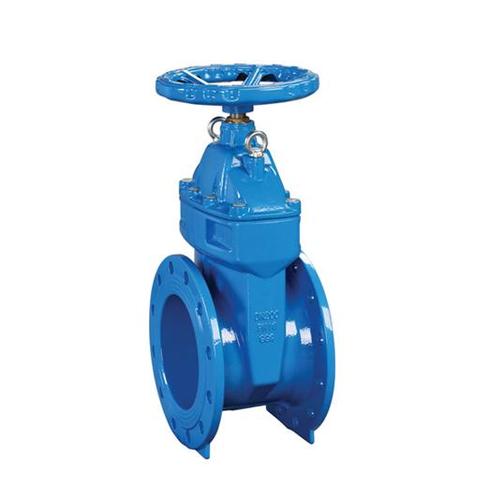|
Gunmetal Seat Gate Valves: A Solution for Corrosive EnvironmentsIn industrial settings, especially those involving the transport of corrosive substances, the choice of materials for gate valves is crucial. One material that has proven to be particularly effective in withstanding the harsh conditions of such environments is gunmetal. This alloy, known for its exceptional strength and resistance to wear and tear, forms the basis of gunmetal seat gate valves, which have become increasingly popular in industries such as chemical manufacturing, oil refining, and wastewater treatment.
Gunmetal, an alloy composed primarily of copper and zinc with small amounts of tin and lead, derives its name from its original use in the production of cannons and other firearms. Its unique composition endows it with a range of properties that make it ideal for use in demanding industrial applications. These include excellent machinability, high strength, and enhanced resistance to corrosion and erosion. It is these characteristics that have led engineers and designers to incorporate gunmetal into the construction of seat gate valves. One of the primary benefits of gunmetal seat gate valves is their ability to maintain performance in aggressive environments. Unlike less durable materials, gunmetal can withstand prolonged exposure to acids, alkalis, and other corrosive agents without significant degradation. This makes gunmetal seat gate valves particularly suitable for use in pipelines and systems that carry chemicals, petrochemicals, and other potentially damaging fluids. Another advantage of gunmetal seat gate valves is their long-term durability. The material's resistance to wear and tear means that these valves require minimal maintenance and have a longer operational life compared to valves made from other materials. This not only reduces downtime but also lowers overall maintenance costs, making gunmetal seat gate valves a cost-effective solution in the long run. The design of gunmetal seat gate valves also contributes to their effectiveness in corrosive environments. The seating surfaces of these valves are typically coated with a layer of PTFE (polytetrafluoroethylene), a synthetic polymer known for its exceptional resistance to chemicals and heat. This coating provides an additional layer of protection against corrosion and ensures a tight seal, even after extended periods of use. Furthermore, the streamlined design of gunmetal seat gate valves minimizes turbulence and pressure loss, enhancing flow efficiency and reducing the potential for cavitation and other forms of damage. In addition to their technical advantages, gunmetal seat gate valves offer practical benefits as well. Their robust construction allows them to be used in a wide range of temperatures and pressures, making them versatile components in various industrial processes. Moreover, their compatibility with different types of actuators—manual, pneumatic, or electric—enables easy integration into existing systems and provides flexibility in operation. Despite the numerous advantages of gunmetal seat gate valves, it is important to consider their limitations. For instance, while gunmetal is highly resistant to corrosion, it is not impervious to all forms of chemical attack. In particularly harsh environments, the valve may still be subject to some degree of deterioration over time. Additionally, the cost of gunmetal seat gate valves can be higher than those made from less durable materials, which may be a barrier for some industries operating on tight budgets. In conclusion, gunmetal seat gate valves represent a reliable and durable solution for managing the flow of corrosive substances in industrial settings. Their combination of strength, resistance to wear and tear, and compatibility with aggressive environments make them an essential component in many industrial processes. While they may come at a higher initial cost, the long-term benefits in terms of reduced maintenance and extended operational life make them a sound investment for industries seeking to enhance efficiency and safety in handling corrosive materials. As technology continues to advance, it is likely that gunmetal seat gate valves will play an increasingly vital role in ensuring the resilience and sustainability of industrial systems worldwide. |

